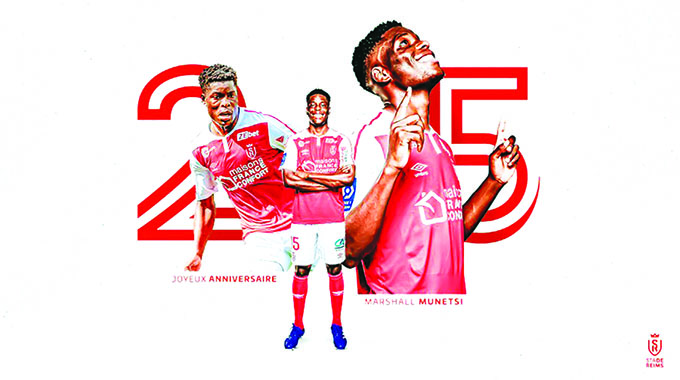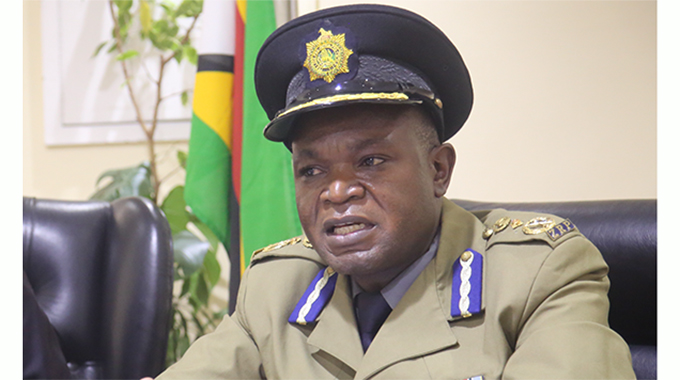Editorial Comment: Both sides of corruption, influence peddling wrong

The comments by President Mnangagwa on those who are close to people in positions of influence and authority wanting favours highlights the other side of the problem of corruption and corruption-related activity.
Sometimes it is not the person in power abusing their office for personal gain, but rather that person seeking to help a relative or friend or long-serving colleague, with entreaties from the relative or friend that can be difficult to resist.
We have seen indications of this in a string of recent court cases and remand hearings on that charge of abuse of public office, where there might well have been bribes or favours given to the person in authority, but sometimes might well have been just a favour granted to someone they liked.
The President made these comments at the funeral of a respected retired officer, Major-General Shadreck Chiramba, who in his long army career moved steadily up the promotion ladder on his own abilities, and as the President pointed out quite strongly, did not try and cash in on friendships developed in the training camps during the liberation struggle or suck up to more senior officers.
Major General Chiramba thus had the satisfaction that he had earned every promotion and every post the hard way, by being good at his job, that those badges of rank on his shoulders were because of what he had done and what he could do, not who he knew or what favours he might have been willing to do. And when you are sitting on your veranda in retirement that is an additional and very important achievement to look back on.
Even in the midst of your active career, it makes a huge difference.
People respect you, listen to you and take your advice or orders seriously. The person who has risen by influence peddling, or has become rich by corrupting others, or has otherwise taken shortcuts can never have that sense of achievement and must always know that they overtook better people on their road through life.
That not only negates their achievements when they examine their self-worth, it also damages society and any organisation they are working for.
When the second-rate move up the ladder they tend to make sure their subordinates are even worse, and are chosen for personal loyalty or favours, rather than on merit.
There are examples of this in both the private and public sectors, and the result tends to be declining and poorly rated organisations that cannot stand the competition and eventually collapse.
The defence forces probably have a greater immunity to this sort of problem, simply because success and failure there are more extreme. Failure means people die, and can even mean your country is wrecked. So merit has a far greater role to play when people are chosen for advancement or posting.
This other side is important when we examine corruption and the serious damage it does. Every act of corruption of abuse of office has two sides, and both sides need to be addressed. When a public figure is bribed, someone paid the bribe. When a public figure grants a favour, someone asked for that favour.
We tend to blame the person who took the bribe or granted the favour. And we are right to do so since one vital qualification for positions of authority is an ability to say no. If you cannot tell your best friend that there is nothing doing then you should never move out of tiny family businesses where everyone is automatically related.
But at the same time we need to move against those who initiate the corruption process by offering the bribe or seeking the dirty deal. Corruption is an interesting crime where there is not a criminal and a victim, but rather two criminals. And if they eventually share a cell, well they can talk about old times together as they pass the time they spend behind bars.
Merit should be the defining test when we are choosing people for employment, promotion or assignment.
We are looking for the best person rather than trying to do a favour.
And if that person then reaches the level where they can do favours, they probably also want to make sure that the same merit they used is used, and society and organisations win.
The corollary to President Mnangagwa’s comments on Major-General Chiramba is that the general, when he was in command of a force or operation, not only expected but could demand that his subordinates were of the highest quality and did their jobs properly, and because of his own reputation he would have been able to insist on that, and high-merit subordinates would have welcomed and responded to that insistence.
That in turn, in the extreme environment of a military operation, would have meant more success and fewer body bags and those are the big prizes when you are in command and the sort of merit that brings out the best in your force.
Merit and decency breed merit and decency and, vitally, success. President Mnangagwa’s comments on Major-General Chiramba are not just something good to say at a funeral. They also have the wider application to society.
It is not just morally good to act the way the general officer did in his posts, but also the practical recipe for success. And Zimbabwe needs success, at all levels and in all sectors.









Comments